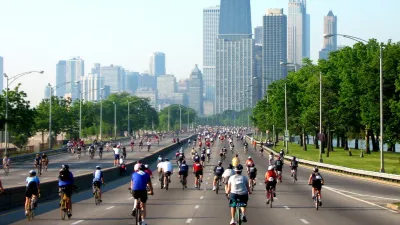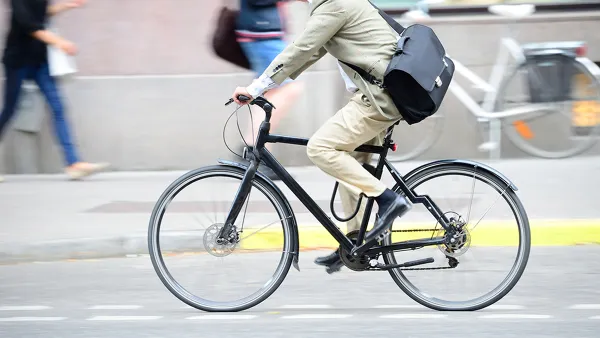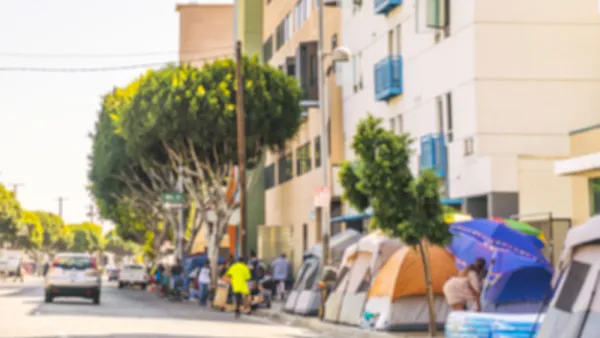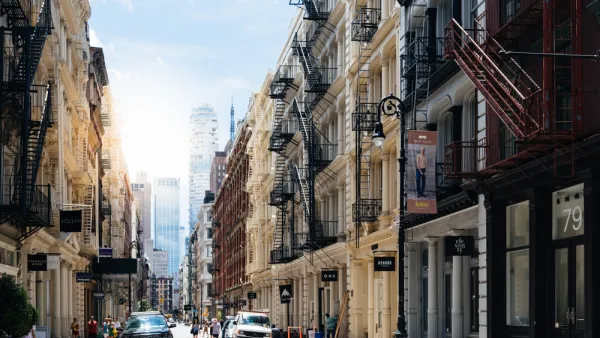A pair of articles explores the implications of data released in May by the U.S. Census about the increasing use of bikes among commuters. The articles, however, don't agree about the implications of the data for low income and minority citizens.

Matthew Yglesias, writing for Vox, responds to an anti-bike rant by Courtland Milloy in the Washington Post by pointing out a myth that the popularity of biking has been driven by an entitled, wealthy, bohemian class. The Census, according to Yglesias, has data to prove it: "in reality these are predominantly commuting modes of the less-privileged."
Yglesias also laments the implications for low income and minority populations caused by the misconception of biking of a privilege of the upper class: "What is true is that when it comes to bicycle facilities, just like many other municipal services, there is a tendency to shortchange low-income neighborhoods with inferior infrastructure. That's deplorable. But systematically downgrading a whole metro area's bicycle facilities — or murdering cyclists at random — in favor of a more car-friendly transportation system is going to disadvantage a disproportionately disadvantaged population in favor of the more affluent class of car owners."
Eve Bratman and Adam Jadhav reference May's Census data in a separate article for CityLab, taking a contradictory approach to that of Yglesias, citing places like Washington D.C. where increases in bike commutes have occurred in affluent neighborhoods but remain "far less common in the lower-income areas east of the Anacostia River."
Bratman and Jadhav present three key findings, the third of which reconciles least with Yglesias's reading of the data:
- "Poor respondents spend more time commuting."
- "Most people, poor and non-poor alike, still want cars."
- "Cycling just isn't popular among the urban poor (yet)."
FULL STORY: It's not just hipsters on bikes — cycling is most popular for poor people

Analysis: Cybertruck Fatality Rate Far Exceeds That of Ford Pinto
The Tesla Cybertruck was recalled seven times last year.

National Parks Layoffs Will Cause Communities to Lose Billions
Thousands of essential park workers were laid off this week, just before the busy spring break season.

Retro-silient?: America’s First “Eco-burb,” The Woodlands Turns 50
A master-planned community north of Houston offers lessons on green infrastructure and resilient design, but falls short of its founder’s lofty affordability and walkability goals.

Test News Post 1
This is a summary

Analysis: Cybertruck Fatality Rate Far Exceeds That of Ford Pinto
The Tesla Cybertruck was recalled seven times last year.

Test News Headline 46
Test for the image on the front page.
Urban Design for Planners 1: Software Tools
This six-course series explores essential urban design concepts using open source software and equips planners with the tools they need to participate fully in the urban design process.
Planning for Universal Design
Learn the tools for implementing Universal Design in planning regulations.
EMC Planning Group, Inc.
Planetizen
Planetizen
Mpact (formerly Rail~Volution)
Great Falls Development Authority, Inc.
HUDs Office of Policy Development and Research
NYU Wagner Graduate School of Public Service




























